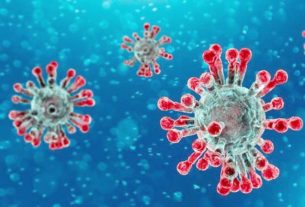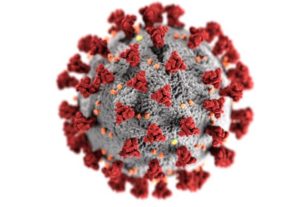From Our Bureau
11TH AUGUST 2020
The Corona Virus (COVID-19) pandemic situation remained grim globally, with the confirmed cases across the world soaring to 1,99,36,210 and the death toll rising to 7,32,499 in the 216 affected countries and territories, according to the latest update from the World Health Organization (WHO).
Globally, American region continued to be the worst-hit with 1,06,97,832 confirmed cases and 3,90,850 deaths. Europe came next with 36,06,373 confirmed cases and 2,17,278 deaths. South-East Asia region’s tally stood at 26,91,452 confirmed cases and 54,633 deaths.
Eastern Mediterranean region reported 16,57,591 confirmed cases and 43,878 deaths. African region registered 9,03,249 confirmed cases and 16,985 deaths. Western Pacific region recorded 3,78,972 confirmed cases and 8,862 deaths. WHO Risk Assessment at global level remained very high.
Nearly 20 million cases of COVID-19 have now been recorded. WHO Director-General Dr Tedros Adhanom Ghebreyesus stressed that behind these statistics, there is a great deal of pain and suffering. He emphasized that “there are two essential elements to addressing the pandemic effectively. Leaders must step up to take action and citizens need to embrace new measures…My message is crystal clear: suppress, suppress, suppress the virus.”
Dr Tedros sent a message of solidarity to the people of Beirut in the aftermath of the massive explosion which killed over 150 people, injured more than 6,000 and made over 300,000 people homeless. “To the people of Beirut, the health workers and emergency workers on the ground, our thoughts are with you and we will continue to support you,” he said.
WHO has sent surgical and major trauma supplies and personal protective equipment worth US $ 1.7 million, as well as providing support to mitigate the impact of COVID-19, address psychosocial needs and facilitate the rapid restoration of damaged health facilities. WHO has issued an appeal for US $ 76 million in support of this work.
A large shipment of medical respirators, medical masks, goggles and gowns –worth €1.1 million – was recently delivered to the Republic of Moldova. The shipment was funded by the European Union and procured by WHO to help health care workers respond effectively and safely to the COVID-19 pandemic. Young people have an important role to play in the COVID-19 pandemic, both in terms of reducing transmission and in engaging in the response.
Subject in Focus: Celebrating International Youth Day and the positive contribution of young people in the COVID-19 response
In addition to its human cost, the COVID-19 pandemic is impacting economies, employment, education and health systems. As a result, young people around the world are being confronted by new challenges and uncertainty. In spite of this, stories of resilience, innovation and solidarity are emerging daily where young people have embraced the opportunity to contribute to the COVID-19 response.
The burden of severe disease has been much higher on older people than on young people. However, young people may be exposed to certain situations and activities that are known to increase the risk of COVID-19 transmission. These scenarios have been referred to as the ‘three Cs’ – crowded places, close-contact settings and confined and enclosed spaces.
Examples include poorly ventilated gyms or indoor restaurants; nightclubs; or large gatherings where physical distancing cannot be maintained. Situations where all three C’s are encountered simultaneously are considered the highest risk for COVID-19 transmission. Young people are also able to transmit the virus to vulnerable people – people older than 60 years and/or with underlying medical conditions.
It is the responsibility of each person, whether young or old, to understand the risks associated with certain situations and activities and to make personal decisions that protect their health and prevent the spread of COVID-19. This includes avoiding the ‘three Cs’. Young people in many settings have been leaders in their communities and among their peer networks in promoting access to information, combatting misinformation and translating and disseminating public health information.
Not only is this enabling young people to make decisions that save lives and protect health, but it is helping to counter a growing culture of blame, stigma and discrimination. International organizations, national health authorities and other trusted networks for information-sharing have a collective responsibility to increase access to the right information and promote understanding about risk and transmission.
On 12th August, the world celebrates International Youth Day, and this year the theme is “Youth Engagement for Global Action.” WHO will be highlighting the myriad ways in which young people are engaging at the global, national and local levels and contributing towards the COVID-19 pandemic response.
Many young people are working on the frontlines as healthcare providers and other essential workers; youth-led initiatives are striving towards collaboration, solidarity and inclusivity; and others are using the opportunities provided by an unprecedented access to information and digital technologies to communicate and share information.
Tomorrow, as part of the International Youth Day activities, WHO and UNESCO will host a webinar with the participation of Dr Tedros and UNICEF’s Executive Director Henrietta Fore, in honor of the young people around the world who have demonstrated their resilience, collective action and creativity in responding to the COVID-19 pandemic. (eom)



